A very rare Dutch engraved facet-cut baluster 'Orangist' goblet, dated 1788The generous round funnel bowl finely decorated with a husk wreath containing the inscription 'DE ZUCHT VOOR'T/ VORSTLYK HUIS, VOOR KERK/ EN VADERLAND,/ IS HIER HET SCHIBBOLETH,/ DE STALEN LIEFDEBAND,/ AMSTERDAM. 1 April/ 1788.', pendant from a banner inscribed 'LANGBLOEI DE SOCIETIT' (Long Live the Society), a band of unusual spiral facets to the base of the bowl, the multi-faceted stem with an upper angular knop above a small cushion knop, beaded inverted baluster with a small basal knop, over a facet-cut conical foot, 17.6cm highFootnotesProvenance With Frides Laméris, 6 April 2017 Stephen Pohlmann Collection The inscription translates as 'The love for the Royal Family, for Church and Fatherland, is here the shibboleth, the band of love, made of steel.' An identical glass in the Amsterdam Museum is illustrated by Hubert Vreeken, Glas in Het Amsterdams Historisch Museum (1998), p.234, no.248. The society to which the inscription refers was an exclusive club with around 100 wealthy members who met in an upstairs room of Hollandse Koffiehuis in the Kalverstraat in Amsterdam, where they sang songs celebrating the glory and health of stadtholder William V, Prince of Orange. It was one of a number of Orange societies that emerged in the period immediately following the restoration of the stadholder in 1787. The Orange restoration followed a period of great political instability in the Dutch Republic between supporters and opposers of the Anglophilic stadtholder. The Dutch Patriots, formed of nationalists desiring reform, sought his removal and a more democratic government, whereas the Orangists remained loyal. William had been forced to withdraw following the disastrous Fourth Anglo-Dutch War (1780-84) but seized back power from the Patriots during the Prussian invasion of Holland in 1787 with the military help of his brother-in-law, Frederick William II of Prussia, shortly before this glass was engraved. Unfortunately for him the regime was short-lived, as he was forced into permanent exile at the end of the Batavian Revolution in 1795, marking the end of the Dutch Republic. For an armorial goblet of related manufacture, see lot 51 in this sale.
A very rare Dutch engraved facet-cut baluster 'Orangist' goblet, dated 1788The generous round funnel bowl finely decorated with a husk wreath containing the inscription 'DE ZUCHT VOOR'T/ VORSTLYK HUIS, VOOR KERK/ EN VADERLAND,/ IS HIER HET SCHIBBOLETH,/ DE STALEN LIEFDEBAND,/ AMSTERDAM. 1 April/ 1788.', pendant from a banner inscribed 'LANGBLOEI DE SOCIETIT' (Long Live the Society), a band of unusual spiral facets to the base of the bowl, the multi-faceted stem with an upper angular knop above a small cushion knop, beaded inverted baluster with a small basal knop, over a facet-cut conical foot, 17.6cm highFootnotesProvenance With Frides Laméris, 6 April 2017 Stephen Pohlmann Collection The inscription translates as 'The love for the Royal Family, for Church and Fatherland, is here the shibboleth, the band of love, made of steel.' An identical glass in the Amsterdam Museum is illustrated by Hubert Vreeken, Glas in Het Amsterdams Historisch Museum (1998), p.234, no.248. The society to which the inscription refers was an exclusive club with around 100 wealthy members who met in an upstairs room of Hollandse Koffiehuis in the Kalverstraat in Amsterdam, where they sang songs celebrating the glory and health of stadtholder William V, Prince of Orange. It was one of a number of Orange societies that emerged in the period immediately following the restoration of the stadholder in 1787. The Orange restoration followed a period of great political instability in the Dutch Republic between supporters and opposers of the Anglophilic stadtholder. The Dutch Patriots, formed of nationalists desiring reform, sought his removal and a more democratic government, whereas the Orangists remained loyal. William had been forced to withdraw following the disastrous Fourth Anglo-Dutch War (1780-84) but seized back power from the Patriots during the Prussian invasion of Holland in 1787 with the military help of his brother-in-law, Frederick William II of Prussia, shortly before this glass was engraved. Unfortunately for him the regime was short-lived, as he was forced into permanent exile at the end of the Batavian Revolution in 1795, marking the end of the Dutch Republic. For an armorial goblet of related manufacture, see lot 51 in this sale.
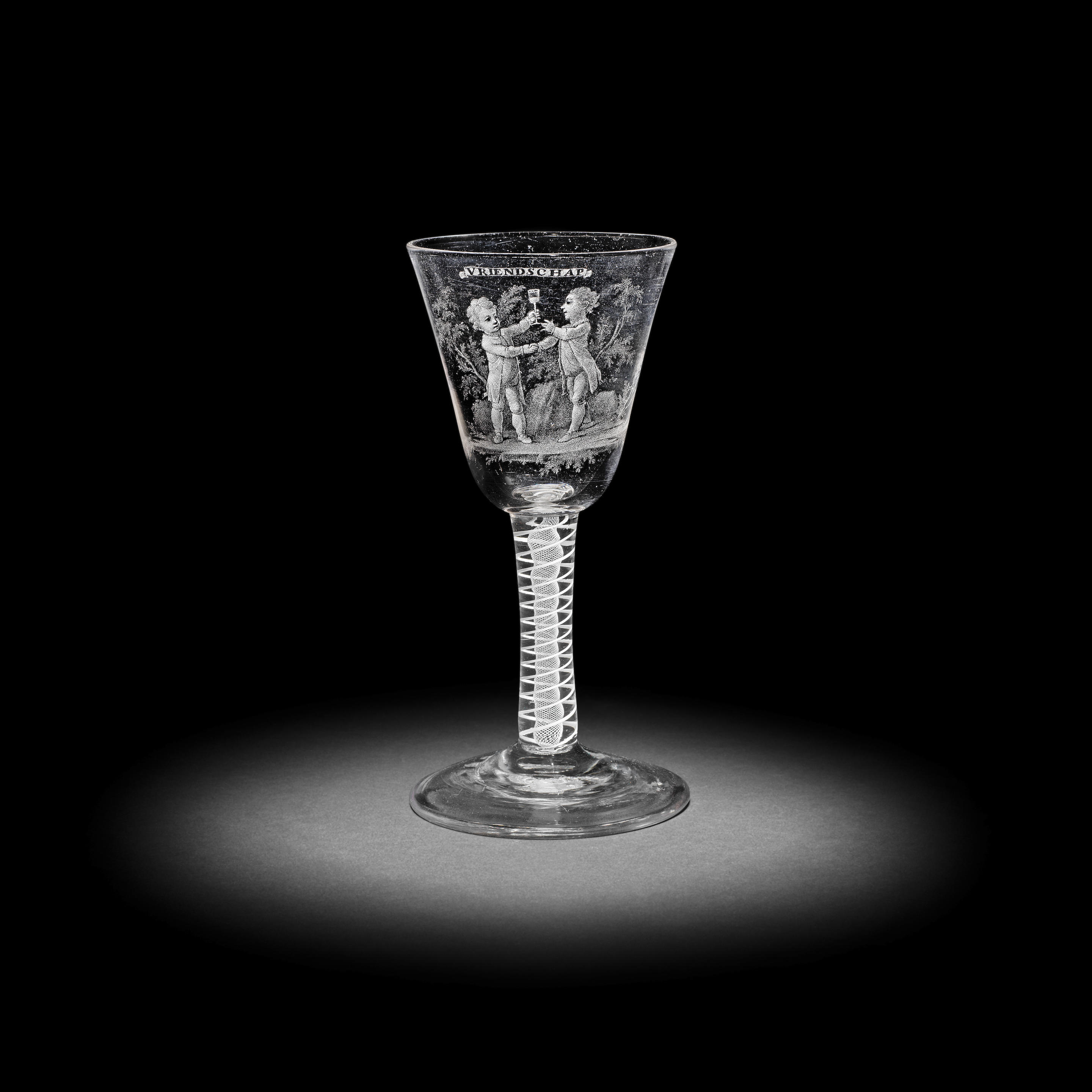
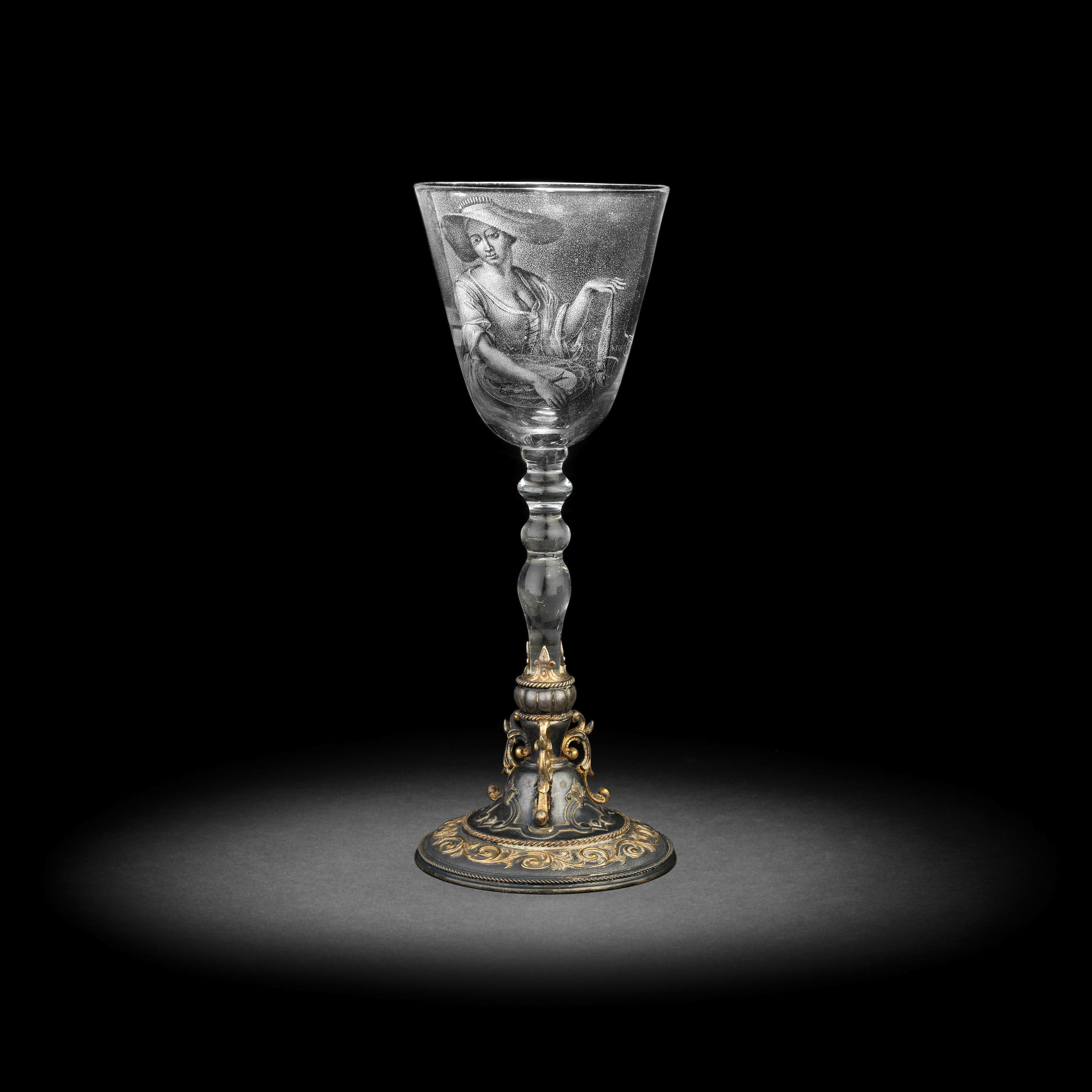

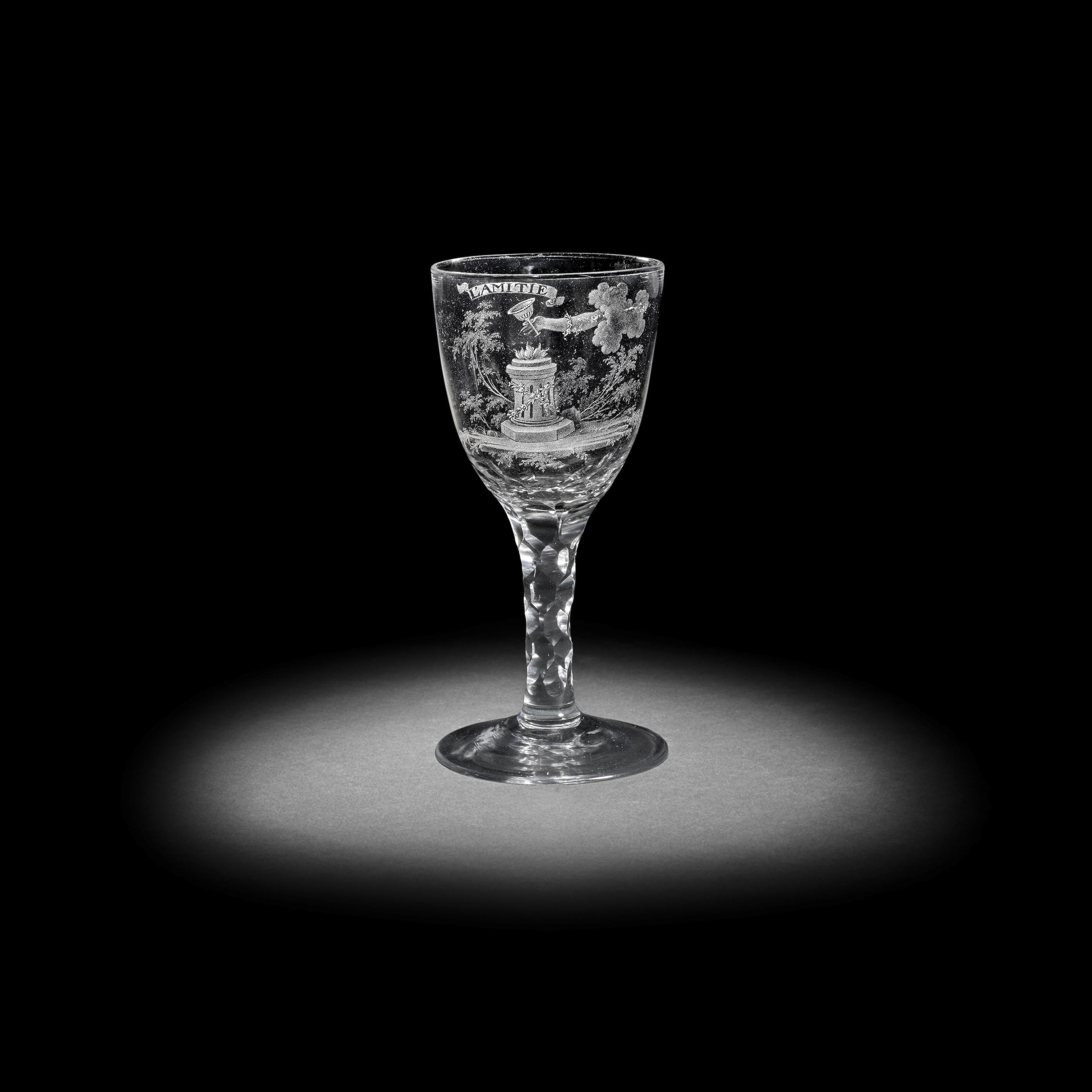
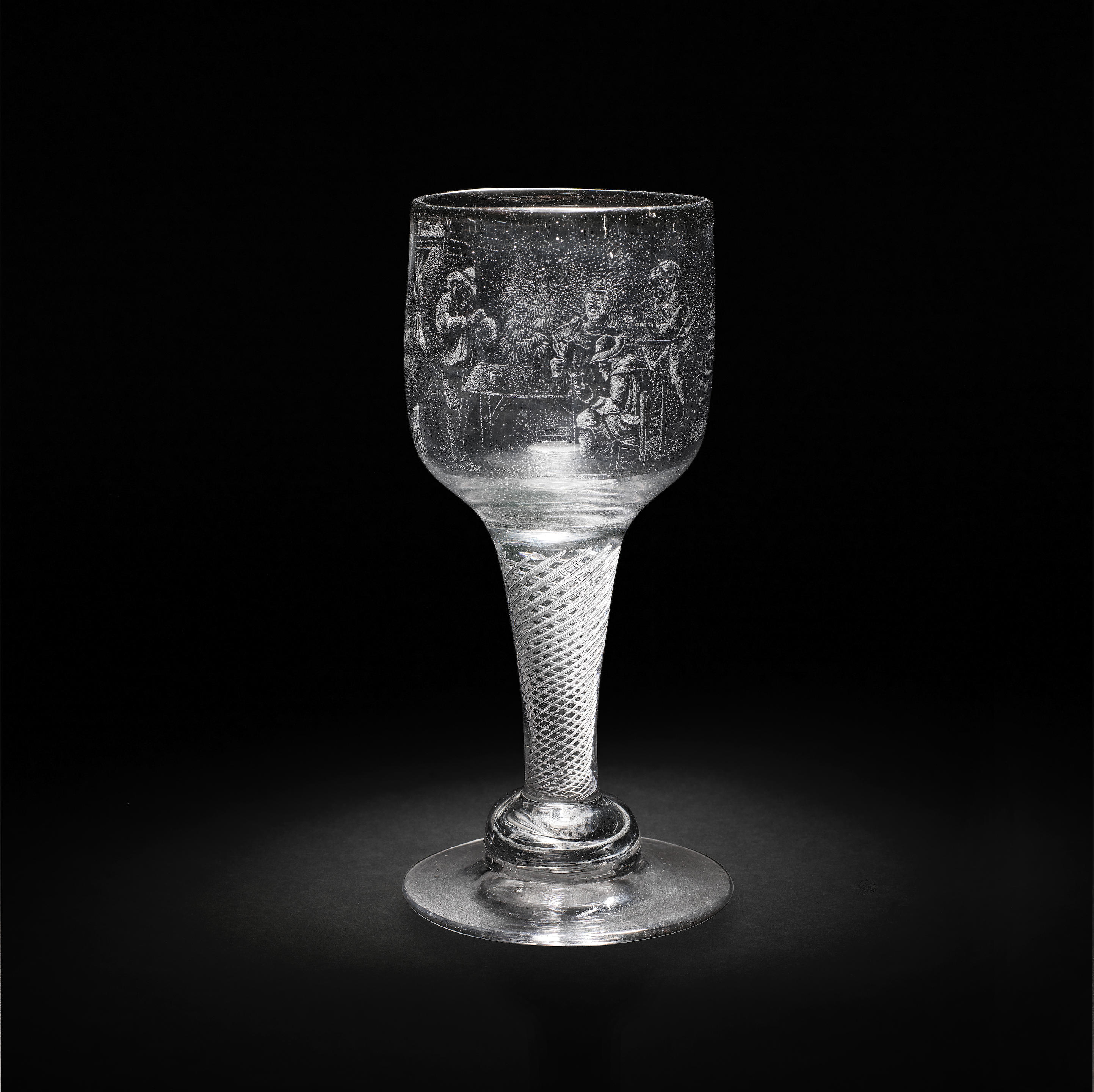
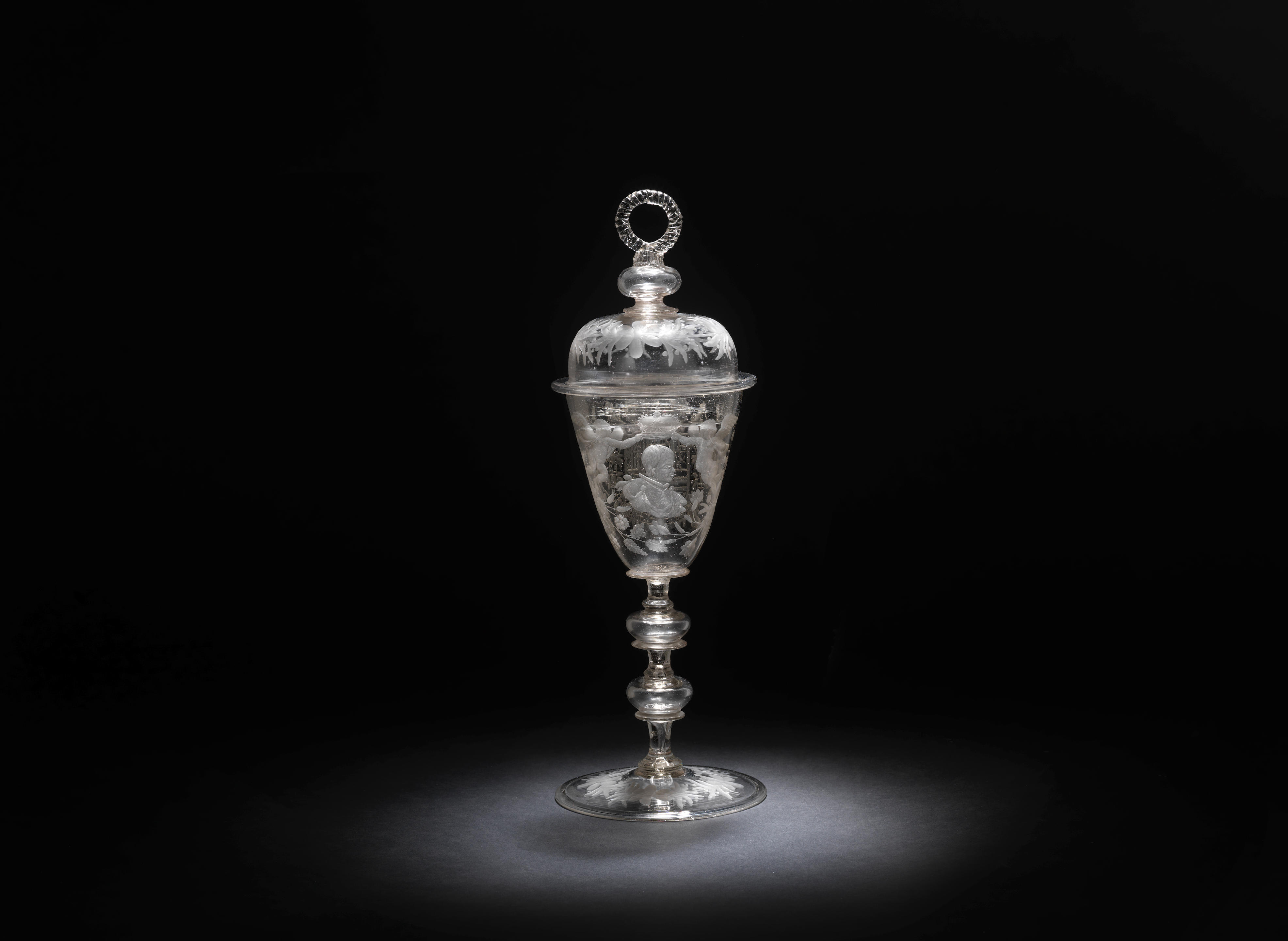






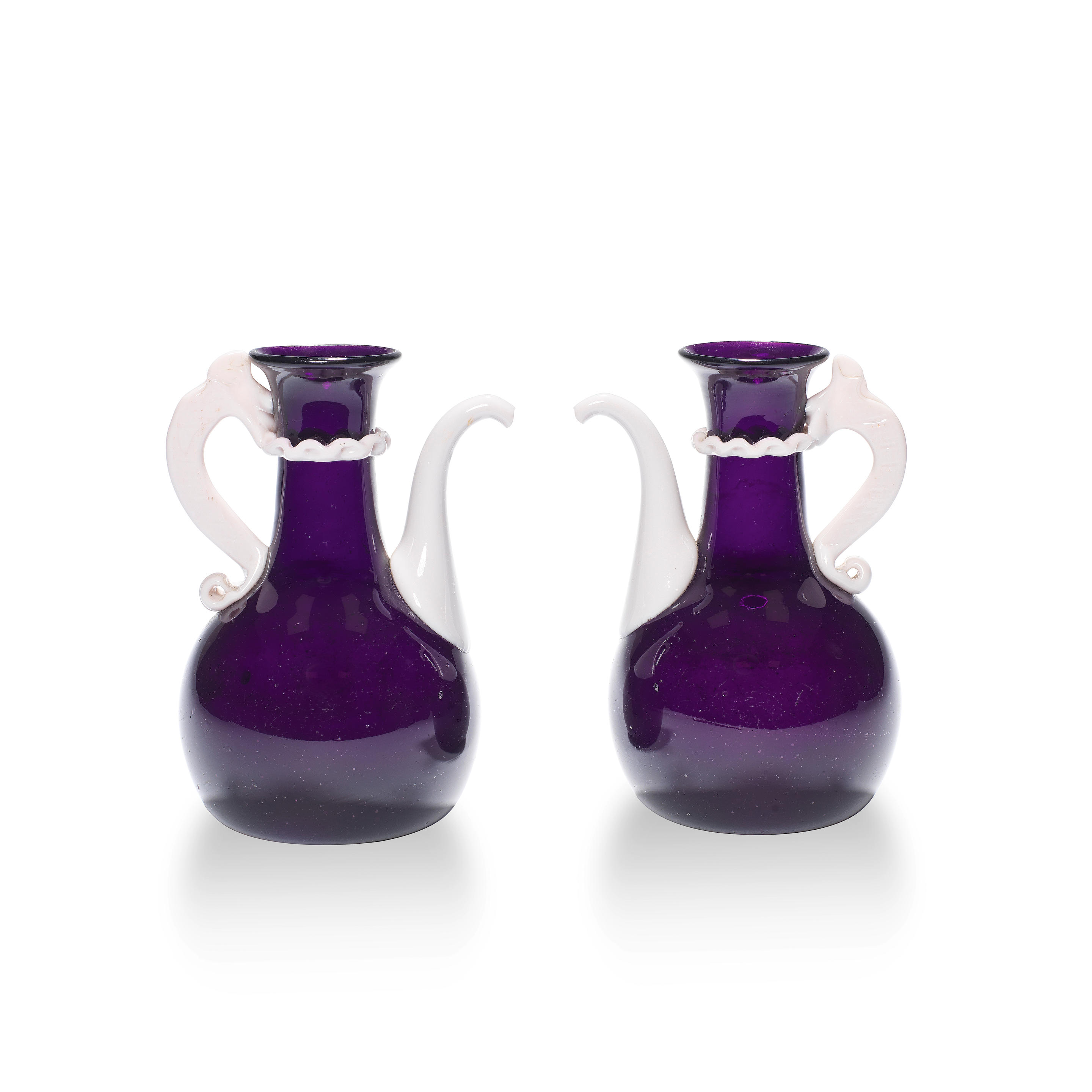
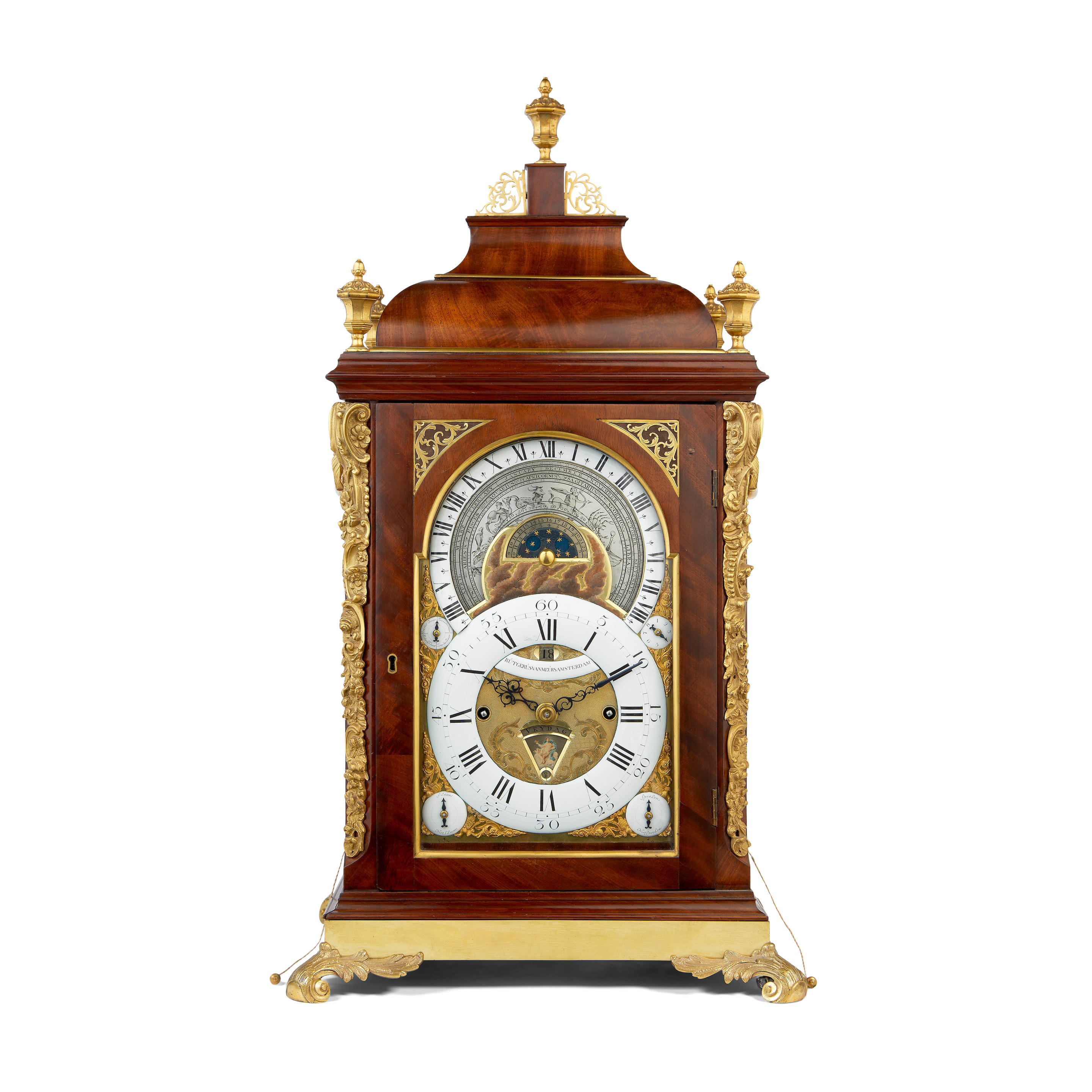
Try LotSearch and its premium features for 7 days - without any costs!
Be notified automatically about new items in upcoming auctions.
Create an alert